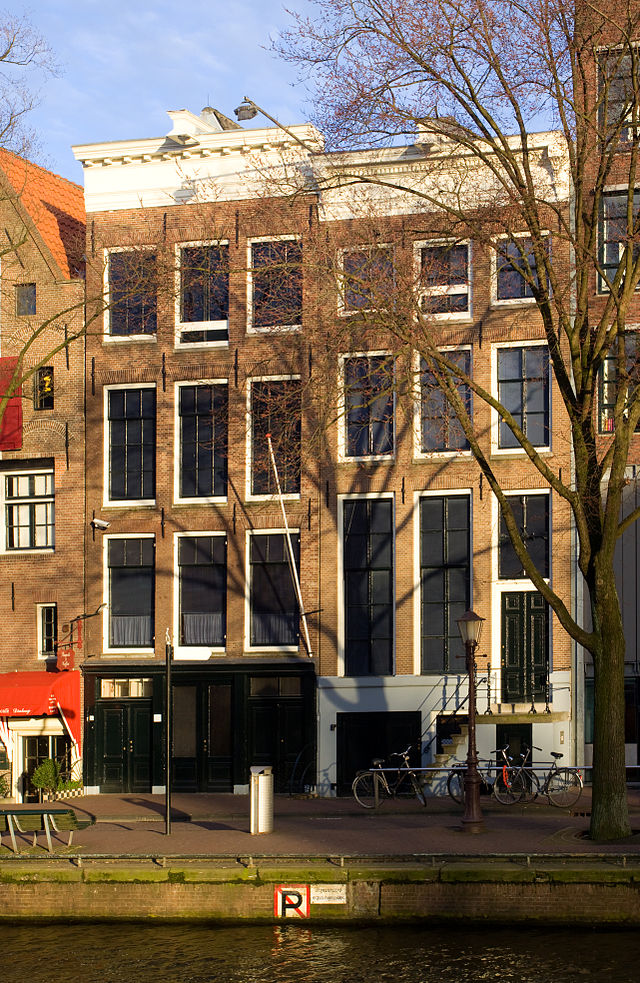Anne Frank: Book identifies betrayer as helper's sister and Gestapo informer Nelly Voskuijl



More than 70 years after the Amsterdam house that Anne Frank was hiding in was stormed by the Nazis, a new book claims to have finally shed light on the identity of the informer who gave up the young Jewish diarist and her family.
Evidence gathered by the authors points the finger at Nelly Voskuijl, the sister of a Dutch resistance activist who helped the Frank family evade capture for more than two years.
The allegation is contained in Bep Voskuijl, Silence No More, a Dutch-language biography of Elisabeth "Bep" Voskuijl, a typist who worked for Anne's father, Otto Frank, before the war and later tried to save her former employer's family from the Holocaust.
Co-authored by Voskuijl's son, Joop van Wijk, and Flemish journalist Jeroen De Bruyn the book claims Voskuijl's younger sister Nelly was a Gestapo collaborator between the ages of 19 and 23.
It cites the testimonies of another Voskuijl sister named Diny and of Bep's fiance during the war to suggest it was Nelly who, on the morning of 4 August 1944, phoned the SS to reveal the whereabouts of the Frank family's hideout.
Within minutes, the 17th-century canal house at the Prinsengracht in the city centre was raided and the secret annex that had housed the family for two years was exposed.
The book says Nelly was angry at her sister and father for being sympathetic toward the Jews. Both knew the location of the safe house, which entrance was covered by a bookcase.
It also quotes Karl Silberbauer, the SS officer who received the call and made the arrests, as saying the caller had "the voice of a young woman". Nelly, who died in 2001, was aged 21 at the time of the events.
"Our conclusion is painful, but clear," the authors wrote, according to Haaretz newspaper.
Bep had been caring for the Franks and the other families hiding there along with resistance fighter Miep Gies since 6 July 1942. The book claims she suspected her younger sister was the informer but kept the secret up to her death from kidney disease in 1983.
During her time in hiding, Anne wrote a diary that was published under the title Diary Of A Young Girl by her father - the only family member to survive the Holocaust - after the war. It became an international bestseller and has been registered in Unesco's Memory of the World.
Anne died in the Nazi concentration camp of Bergen-Belsen in 1945 at the age of 15.
© Copyright IBTimes 2024. All rights reserved.







